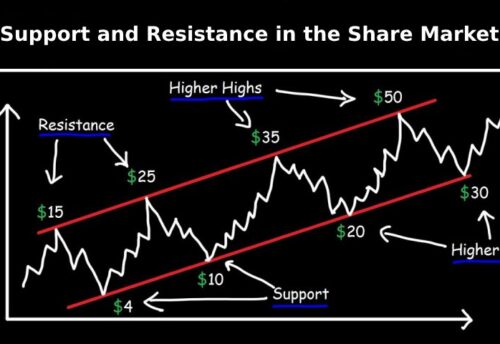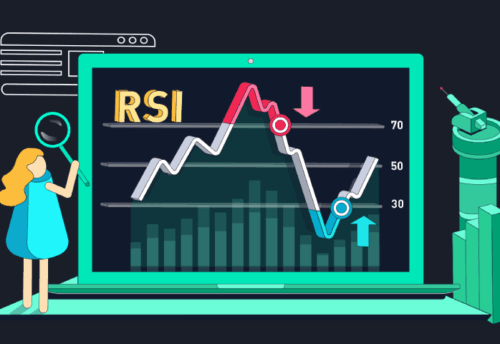
- 05/10/2024
- MyFinanceGyan
- 221 Views
- 4 Likes
- Investment, Share Market
What is Share Market?
The stock market or share market or dalal street is a platform where individuals and institutions can buy, sell, and trade shares of publicly listed companies. It plays a critical role in the economy by allowing companies to raise capital and investors to gain partial ownership in companies and potentially earn returns on their investments. In India, “the stock market” and “ Dalal Street” can refer to the entire world of securities trading—including stock exchanges where the shares of public companies are listed for sale and markets where other securities are traded.
Key Components of the Stock Market:
- Stock Exchanges: A stock exchange is a marketplace where stocks are listed and traded. Examples include the National Stock Exchange (NSE) and the Bombay Stock Exchange (BSE) in India.
- Stocks: Stocks, also known as shares or equities, represent ownership in a company. When you buy a stock, you own a piece of that company.
- Investors: Investors are individuals or institutions that buy and sell stocks with the aim of making a profit. Investors can be retail (individuals) or institutional (banks, mutual funds, pension funds).
- Brokers: Brokers are intermediaries who facilitate the buying and selling of stocks for investors. They can be full-service brokers, offering advice and personalized services, or discount brokers, providing a platform for self-directed trading.
- Market Indices: A market index tracks the performance of a group of stocks, representing a specific sector or the entire market. Examples include the Nifty 50 and Sensex in India.
- Regulators: Regulatory bodies oversee the stock market to ensure fair trading practices, transparency, and investor protection. In India, the Securities and Exchange Board of India (SEBI) serves this role.
How it Works?
- Buying and Selling: Investors place orders to buy or sell stocks through brokers. These orders are matched on the stock exchange, and the trade is executed.
- Price Determination: Stock prices are determined by supply and demand. If more people want to buy a stock (high demand), the price goes up. If more people want to sell (high supply), the price goes down.
- Market Movements: Stock prices fluctuate based on various factors, including company performance, economic conditions, and investor sentiment. These movements create opportunities for investors to make profits or incur losses.
Purpose of the Stock Market:
- Capital Raising for Companies: Companies issue stocks to raise money for expansion, research, or other business activities.
- Investment Opportunities for Individuals: The stock market provides a way for individuals to invest in companies and potentially grow their wealth.
- Economic Indicator: The stock market often reflects the overall health of an economy. Rising stock prices generally indicate economic growth, while falling prices may signal economic trouble.
Stock Market vs Stock Exchange:
Although the terms are used interchangeably, the stock market is not the same as a stock exchange. Think of a stock exchange as a part of a whole—the stock market comprises many stock exchanges, such as the Bombay Stock Exchange (BSE) and the National Stock Exchange (NSE) in India.
When people talk about how the stock market is performing, they mean the thousands of public companies listed on multiple stock exchanges. And more generally, the stock market can be thought of as encompassing a very broad universe of bonds, mutual funds, exchange-traded funds (ETFs) and other securities beyond just stocks.
How to Invest in the Stock Market?
If you want to invest in the stock market, the process to get started is easier than you think:
- Decide what kind of account you want to open. From retirement savings to college savings, from short-term goals to long, there really is an investment account for everything.
- Open a brokerage account. Once you’ve decided what kind of account you want, you’re ready to open an account at a provider called a brokerage. When choosing a company, consider their fees and available investment options.
- Deposit money. To get started, you need to make an initial deposit. You can also set up recurring deposits to automate your investments going forward.
- Choose your investments. Once your account is open, you can buy and sell securities. You can opt for individual stocks and bonds or mutual funds, index funds and exchange-traded funds (ETFs) that contain hundreds of individual securities. Many experts recommend a diversified, fund-based approach to minimize the risk any one bad investment loses your money.
- Purchase your investments. Once you’ve settled on what you want to buy, simply enter the ticker symbol in the buy field and indicate how many shares you want to buy.
In summary, the stock market is a dynamic and complex environment where shares of publicly traded companies are bought and sold, providing opportunities for investment and growth.
Please note,
The views in the article/blog are personal and that of the author. The idea is to create awareness and for educational purpose and not intended to provide any product recommendations.



